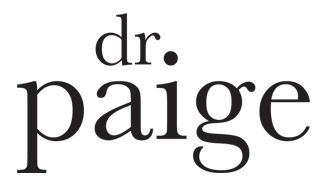Can you Architect Accountability?
I was working with the Executive team of a large insurance firm recently on resetting accountability. The CEO has recognised that the legal requirement for accountability that has swept the financial services industry is barrelling towards the insurance industry and he is determined to stay ahead of the wave. One of the challenges they were wrestling with was how to make accountability part of the normal way of working across a large and dispersed workforce, many of whom are working from home. It’s a problem I see many leaders and organizations are challenged by, particularly as hybrid work becomes more widespread.
There’s a saying in the social sciences – ‘Context is King’. Because whilst it can be useful to remove ‘noise’ when you are researching a particular idea or process, the reality is that everything happens in context. And to remove context from the picture makes it less informative, accurate and real. So whether that’s our current thinking in the context of our previous experiences, team dynamics in the context of current workload or staff performance in the context of broader influences, such as COVID and working from home.
And the same is true for accountability. Context matters.
One important contextual influence on accountability is culture. Intentionally creating a culture of accountability will normalise the mindsets, attitudes and behaviours that support personal ownership and collective responsibility. And this doesn’t have to mean a lot of additional work. Using my 4Rs Cultural Containers framework can help leaders identify how to role model and leverage existing routines, rituals and rhythms to support accountability – even with a remote or hybrid way of working.
Let’s explore each of the 4Rs…
1. Role Modelling
Change in team culture begins when leaders start to role model the mindsets, attitudes and behaviours they want their team to emulate.
I’m sure like me, you’ve been in situations when you’ve been asked to do something differently, but leaders haven’t set the example; they are in some way ‘exempt’ from needing to make the change.
Do you remember how disheartening that was? How it made you feel like the change was being done ‘to you’ rather than ‘with you’?
Dialling up accountability is not easy work. There‘s bound to be discomfort along the way as people make the transition to the ‘new normal’. Which is why it’s critical that as leaders we step up and lead by example – sharing our discomfort as we do, so that others feel ok to struggle and safe to flag it with us as they go on the journey.
How can you role model personal ownership and share your struggles and successes with accountability with your team?
2. Routines
The practices and processes that teams use on a regular basis to get the work done – their routines – are powerful opportunities to create and reinforce group norms.
Routines are valuable because they save time and energy by removing the need to think about and coordinate people around every individual task – the team knows the routine and so can get things done faster. I call these the ‘mechanics’ of your team.
How can you use existing routines like team meetings, performance reviews and project reviews to normalise discussions about personal ownership, collective responsibility and accountability?
3. Rituals
It may be easy to think that rituals are not relevant in the workplace, but Dr Heidi Grant, Ph.D. from the NeuroLeadership Institute suggests that rituals help people to feel more deeply involved in their team experience, which in turn means they value it more.
I think of rituals as ‘social glue’ that help us connect with each other personally and to the purpose for us being together – which in a team is often the work we do together. Rituals can be work related, for example how you induct a new team member or celebrate team success, or personal, such as celebrating birthdays or giving someone a farewell from the team. Rituals support the dynamics of your team.
How can you use existing rituals to shine a light on accountability or create new ones to reinforce the personal ownership and collective responsibility mindsets, attitudes and behaviours you want to normalise?
[A quick note, whist it’s useful to separate routines and rituals for clarity, you may find that some rituals fall within existing routines e.g. you shine a light on accountability success (ritual) in a team meeting (routine).]
4. Rhythms
In the same way that music has a beat that sets the tone of the piece, the rhythm of your team is about the timing with which routines and rituals happen.
And this is important, because how frequently something happens tells a lot about how important it is. For example, how often do you role model personal ownership? What frequency do you discuss collective responsibility in team meetings? Are your performance review conversations annual, quarterly, monthly?
In the context of COVID, the specifics of the 4Rs may have changed for you and your team, but I guarantee they are still there. The question is, how will you use them strategically and intentionally to dial up and normalise accountability for yourself and the people you lead?
Want more?
You can read more about how leaders can take a more effective approach to accountability in my e-book, The Accountability Reset. Just click here to download it. And if you haven’t read my book Becoming AntiFragile yet, why not ‘try before you buy’ with the free chapter download here
Time to talk?
If you’d like to talk about how we can work together to help you, your leadership team or your organisation reduce fragility by Resetting Accountability and/or Becoming AntiFragile. Simply click here and I’ll be in touch.

Dr Paige Williams
International Speaker, Author, Mentor
Determined to help leaders move beyond just the need for resilience, Paige provides practical, evidence-based strategies for leaders to become antifragile, lead themselves and their teams to thrive and succeed in the Decade of Disruption.






